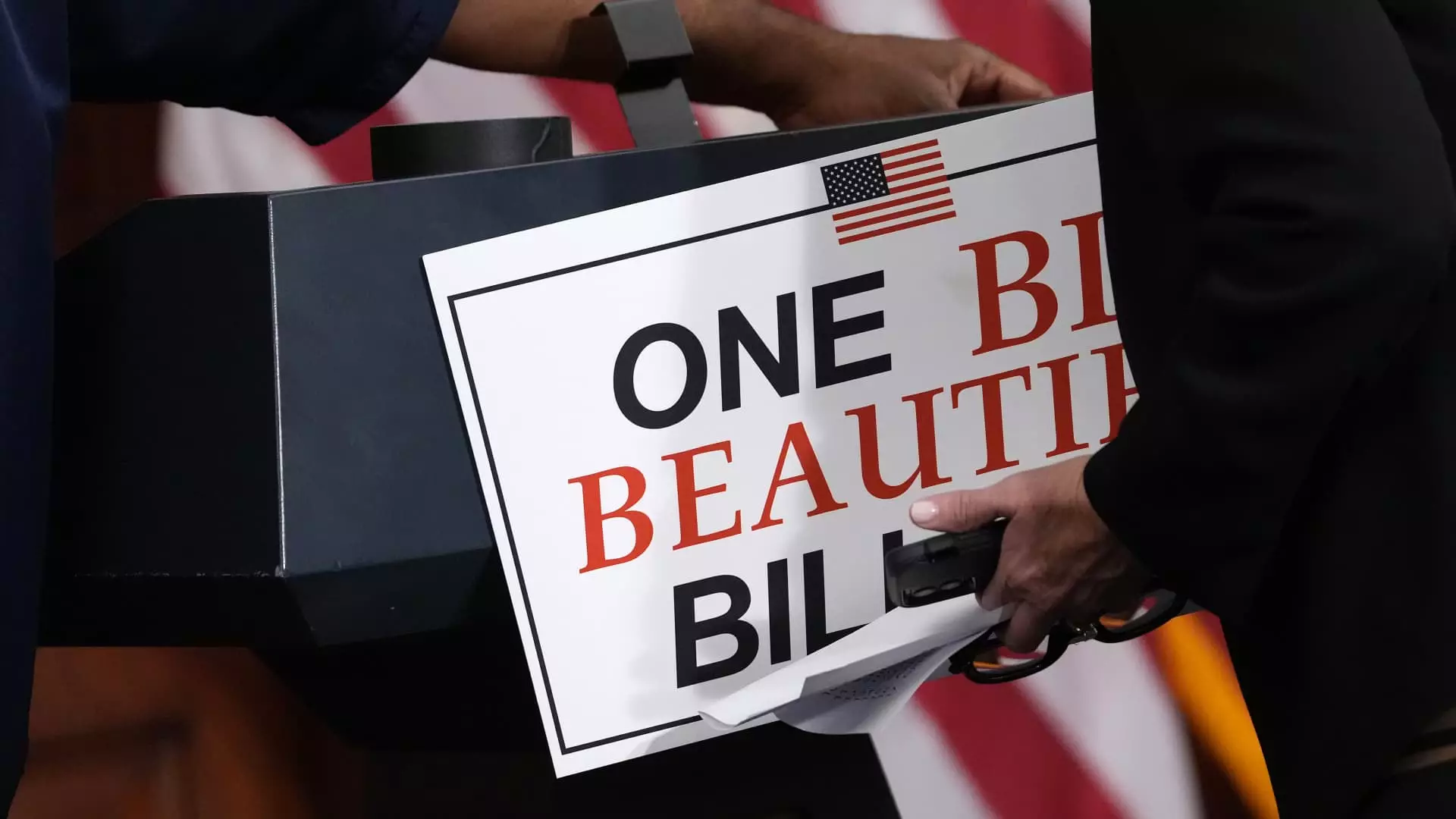In a display that reeks of fiscal irresponsibility, House Republicans have recently passed a massive tax and spending plan informally dubbed the “One Big Beautiful Bill Act.” This package, which ostensibly aims to enact many of President Donald Trump’s priorities, reflects a glaring disconnect from the realities faced by everyday American families. While this legislation is sold as a boon to the American economy, its potential impacts shout otherwise. By pushing for permanent tax cuts that predominantly benefit wealthier individuals and large corporations, the GOP is not just making a financial miscalculation; it is fundamentally undermining the very fabric of socioeconomic equity in this country.
The act seeks to institutionalize Trump’s 2017 tax cuts, which have already shown to disproportionately favor the affluent. By adding tax breaks that are intended to aid specific groups, such as those earning tips or overtime, the legislation is nothing more than a fig leaf that only slightly obscures the enormous privilege granted to the wealthy. This so-called “big bill” indicates a lack of real commitment to low-income families who consistently bear the burden of regressive tax policies. Furthermore, the plan includes spending cuts to critical programs such as Medicaid and SNAP, which provide essential support to vulnerable populations. These changes paint a dire picture of a congress that favors tax breaks for its rich benefactors over support for struggling Americans.
A Dangerous Reckoning
What is perhaps most alarming about the current state of the legislation is the method by which Republicans are attempting to push it through the Senate: budget reconciliation. By sidestepping the filibuster and only requiring a simple majority vote, the GOP is prioritizing party lines over national interests. Senators like Ron Johnson have expressed concerns over potential deficits resulting from the House’s ambitions, with estimates soaring as high as $3.8 trillion over the next decade. These numbers are not mere technicalities; they reverberate with the potential to impact the American populace profoundly.
Let us not forget that this is not the first act of fiscal negligence by the Republican Party. The previous tenure under Trump has already exacerbated inequality, and this move appears to be a brazen attempt to reinforce that legacy. The fact that this bill is still under discussion tells us that Republicans remain more focused on preserving the status quo for their affluent allies than on addressing the humanitarian crisis unfolding among the lower and middle classes.
The SALT Debacle
Among the litany of issues in the proposed legislation, the debate surrounding the state and local tax (SALT) deduction stands out like a sore thumb. A limit of $10,000 on this deduction — implemented by Trump’s tax reform — is set to be revisited, and the House GOP’s proposal to raise it to $40,000 serves only to highlight the party’s preference for affluent constituents over working Americans. States like New York and California, which tend to have higher taxes, are where this provision often becomes a crucial talking point. Still, even a temporary cap increase, if ultimately negotiated down to a lesser amount, will do nothing but further alienate the very citizens the Republicans claim to represent.
This apparent desire for concessions from high-tax states reflects the party’s failed understanding of the American tax landscape. A significant portion of this package is dedicated to protecting the interests of the wealthy elite while cutting vital support systems for the disadvantaged. The desire to bless select demographics while pinching the most vulnerable is a clear example of policy making gone wrong. Instead of creating equitable tax structures that promote fair competition, this legislation seems poised to entrench existing inequalities.
A Fragile Balance
As the bill heads to the Senate, the discomfort over its implications grows, with various senators expressing opposition based on fiscal responsibility. Some senators have even suggested expanding the child tax credit — a move that would demonstrate a recognition of the pressing needs besetting American families. With powerful voices calling for a bigger tax break, there lies a sliver of hope that common sense may still prevail in this chaotic political landscape. Yet, it remains to be seen whether this government can put aside partisan interests long enough to validate that hope.
It’s a delicate balancing act — can Congress genuinely prioritize its citizens over special interests? If they cannot, we stand at the precipice of a significant societal withdrawal; the phantasm of prosperity dangled in front of us may wither into an illusion as the wealthy retreat even further into their golden bubbles. Ultimately, if this bill’s inherent contradictions stand unchallenged, we risk entrenching a reality in which American families find themselves not just surviving, but on the losing side of a broken system.

